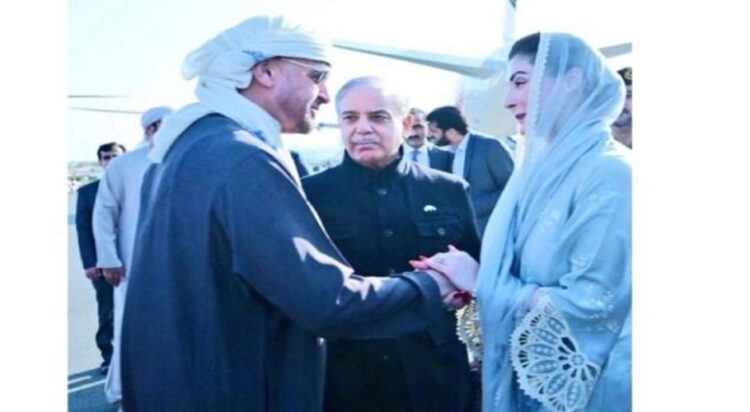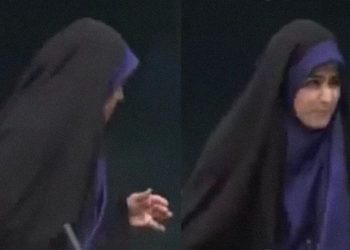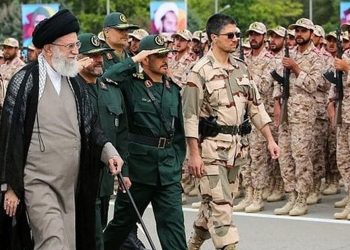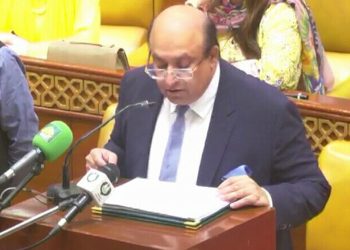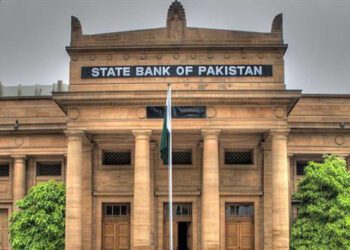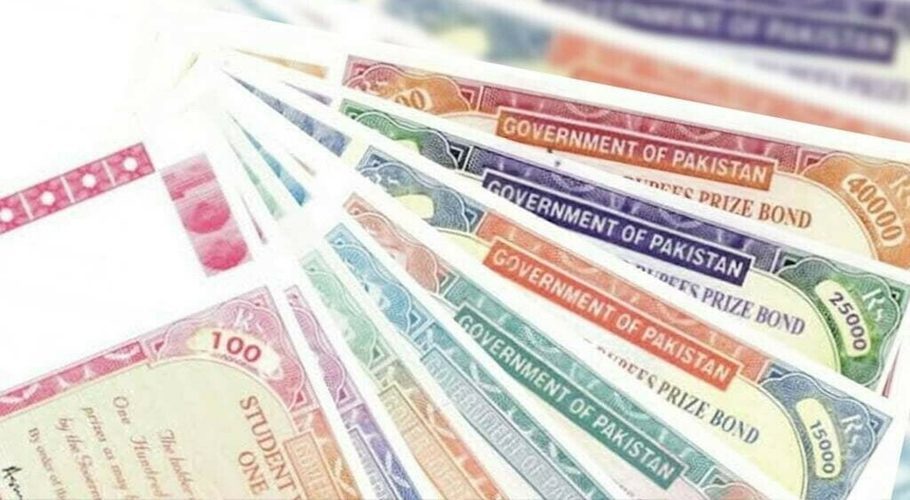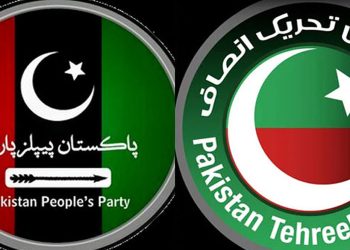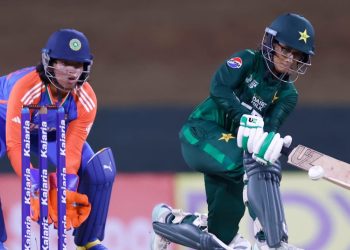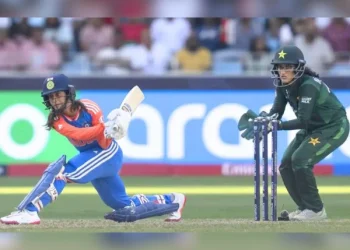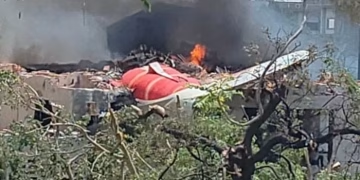A viral photo from yesterday showing Punjab’s first female Chief Minister, Maryam Nawaz, shaking hands with UAE President Sheikh Mohammed bin Zayed Al Nahyan upon his arrival has taken social media by storm. What was intended as a diplomatic greeting has sparked a heated debate over protocol, cultural norms, and Islamic traditions. Was it simply a gesture of goodwill, or did it cross a line?
The image, which shows Maryam Nawaz shaking the President’s hand with both of hers, has drawn sharp criticism from Pakistan Tehrik-e-Insaaf (PTI) and several others who claim the act was a breach of Islamic principles. Critics argue that as a Muslim woman, she should not have shaken hands with a ‘non-mahram’ (a man she is not closely related to). This reaction highlights the tension between global diplomatic practices and Pakistan’s own societal norms, which discourage physical contact between unrelated men and women.
In diplomatic circles, handshakes between male and female officials are influenced by cultural traditions, personal preferences, and societal norms. While many countries follow the tradition of a handshake as part of diplomatic protocols, Muslim-majority nations like Pakistan have stricter guidelines. These guidelines generally advocate for alternative gestures, such as placing one’s right hand on the chest or offering a slight bow, particularly in cases where physical contact is considered inappropriate.
Many Pakistani female leaders, including former Prime Minister Benazir Bhutto and former Foreign Minister Hina Rabbani Khar, have adhered to global diplomatic norms by shaking hands in their international roles. However, what has set Maryam Nawaz’s handshake apart is the use of both hands, a gesture that goes beyond a simple greeting. The double handshake — where one hand is placed on the arm or wrist of the other person — carries an implicit message of personal closeness or strong connection. In high-level diplomatic circles, this gesture is uncommon, as it could be perceived as overly familiar or even inappropriate.
Critics argue that the double handshake could be misinterpreted as conveying a sense of power, control, or personal attachment. This added layer of physicality, while perhaps unintended, might have crossed a diplomatic boundary, especially considering the strong cultural and religious sensitivities surrounding interactions between men and women in Pakistan.
The incident has sparked widespread debate on social media, where commentators have raised questions about whether the CM was adhering to diplomatic protocols or overstepping traditional boundaries. The criticism has been particularly vocal due to Maryam Nawaz’s previous remarks, where she invoked Islamic references regarding the concept of ‘na-mahram’ (stranger) during her appearances in National Accountability Bureau (NAB) hearings. These past statements have led some to view her handshake with the UAE President as inconsistent with her earlier stance on Islamic norms.
In addition to the social media backlash, several journalists have weighed in on the issue. Sohrab Barkat, a prominent journalist, commented that women in Eastern societies generally avoid shaking hands with men, unless absolutely necessary for diplomatic reasons. In such cases, he suggested, a brief “touch and go” handshake suffices. This comment was widely shared on social media platforms, even though the website Siasat.pk, where it was initially posted, has been banned in Pakistan.
The controversy surrounding Maryam Nawaz’s handshake comes at a time when Pakistan’s relationship with the UAE is under increasing scrutiny. Sheikh Mohammed bin Zayed and a delegation of high-ranking Arab officials are currently on a trip to Pakistan, which has included a visit to Rahim Yar Khan, where the Punjab CM greeted the President. The region, which houses the Sheikh Zayed International Airport, named after the UAE’s founder, has long-standing ties to the UAE, particularly through infrastructure development.
Maryam’s handshake with the UAE leader, which occurred in the presence of her uncle, Prime Minister Shehbaz Sharif, has raised questions about the intersection of diplomacy, tradition, and religion in Pakistan’s evolving political landscape. As a society deeply rooted in both Eastern and Islamic traditions, Pakistan’s approach to diplomatic gestures is often a source of tension. Whether Maryam Nawaz’s actions were an innocent diplomatic gesture or a breach of cultural and religious norms remains the subject of ongoing debate.







